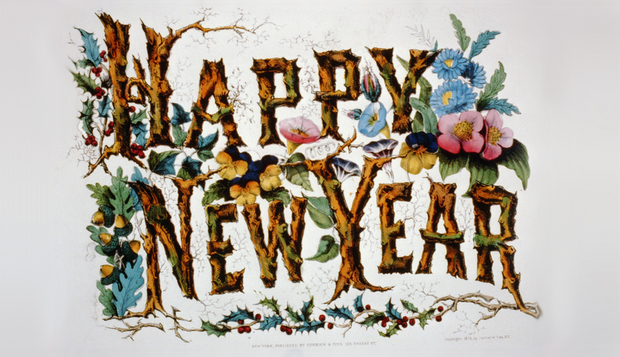New Year’s Eve is this week and Auld Lang Syne started going through the thoughts of this RecordClick genealogist:
“For auld lang syne, my dear, for auld lang syne… we’ll take a cup o’ kindness yet, for auld lang syne…”
The words were written by Scottish poet and national treasure, Robert Burns, in 1788 and set to a traditional folk tune. This genealogist began wondering, just who was Robert Burns?
As I began to search, I quickly realized that, although Robert Burns waxed poetic, he didn’t spend a lot of time here dwelling in the past even though these famous words mean “times gone by.”
He was born in Ayrshire, Scotland, southwest of Edinburgh, in 1759. His short life ended in Dumfriesshire, Scotland in 1796.
Burns, was from humble beginnings. His father, William, was a farmer and the family relocated on a fairly regular basis. Even with limited formal schooling, the younger Burns took an interest in language and began composing verse in 1783. After his father died in 1784, poet Burns’ life took a number of turns that provide interesting material for the genealogist. It seems that, among other things, our poet liked the ladies and knew how to indulge them. And it was these ladies who inspired a good deal of his poetry.
A short timeline:
- January 1759, Robert Burns, was born in Ayrshire, Scotland.
- 1783, Burns began composing poetry.
- 1784, Burns’ father, William died.
- 1784, Burns met Jean Armour in Mossgiel, Scotland.
- 1786, Burns published his first volume of poetry. He started to spend time in Edinburgh as well as Mossgiel.
- 1786, Jean was pregnant with and bore twins. The father was Robert Burns. Unmarried, she took the matter up with local officials.
- 1787, Jean became pregnant again with a second set of twins.
- 1788, Jean gave birth to the second set of twins, both of whom died. A bit later, Jean and Robert were married.
- 1791, by this time Robert and Jean had moved to Dumfries, southwest of Edinburgh.
- July 1796, Burns died in Dumfries of rheumatic fever.
So far, other than the birth of multiples, there isn’t anything terribly unusual for the genealogist to add up, is there?
Well…Burns was a prolific writer of letters in addition to his poetry. In his letters, he reveals a fondness for ladies who were in need. After he began to find an audience for his poetry, he spent time in Edinburgh as well as Mossgiel. Here is a timeline of some of the ladies who received his attention:
- 1785, Elizabeth Paton, a servant in Burns’ father’s home, gave birth to Burns’ first child in May of 1785 (before Jean’s twins were born.)
- 1786, Mary Campbell, a nursemaid in the area, reportedly exchanged bibles with Robert and he promised matrimony. Mary died in the later part of the year.
- July 1787, Mary Cameron, a servant girl in Edinburgh, bore a child and issued Burns a writ concerning the matter.
- Late 1787, Agnes Craig ‘Clarinda’ M’Lehose, who was in an unhappy marriage to someone else, had an affair with Burns that lasted a couple of months.
- 1788, Janet Clow bore a son she named Robert and issued Burns a writ concerning the matter.
- 1790-91, Ann Park bore Burns a daughter she named Elizabeth Burns in March of 1791.
Robert Burns and Jean had nine children together: Robert, b. Sep. 1786; Jean, b. Sep. 1786; unnamed twin, b. Mar. 1788, d. shortly after birth; unnamed twin, b. Mar. 1788, d. shortly after birth; Francis Wallace, b. Aug. 1789; William Nichol, b. Apr. 1791; Elizabeth Riddle, b. Nov. 1792; James Glencairn, b. Aug. 1794; and Maxwell, b. July 1796 on the day his father was buried.
If the genealogist has been counting, Robert Burns had three daughters named Elizabeth and two sons named Robert. The second Elizabeth was born in 1791 within a couple of weeks of the birth of his child William Nichol. So much for a traditional family.
The best website this genealogist has found for information about Robert Burns is “Burns County” at www.robertburns.org. The genealogy researcher may also want to explore the Burns Encyclopedia.
This New Year’s Eve, genealogists, raise your glasses, toast to Auld Lang Syne and to Robbie Burns. Remember the past and “times gone by”, but look to the future.
A RecordClick professional genealogist will help you remember your past–and find your family tree and ancestry records. We have genealogy researchers in Great Britain—and everywhere–who know the ins and outs of document searches and understand the multiplicity of record keeping systems.







